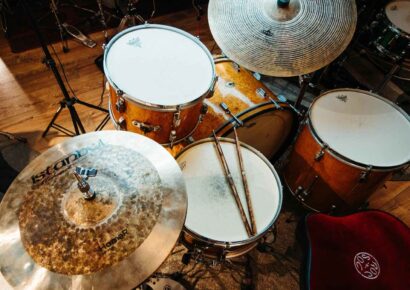You can pay $200, $2,000, or even $20,000 these days for a bass.
Options in woods, electronics, body shape, scale length, colour, plus more means you have more choice than ever in regards to getting the bass guitar you want. But, what are you really getting when you buy something standard off the shelf (be it online or from your trusty local store) as opposed to ordering something possibly more individual from a boutique builder?
Read up on all the latest columns here.
Firstly, one point to keep in mind with this situation is that the definition of boutique is slightly interpretive and will vary depending on who you ask. For some this will mean something (or anything) above your typically standard price brand or instrument. For others it will have to be something completely handmade and individual with features, finish, custom work that is above your standard instrument.
Custom Shop
Just to blur the lines further – a staple of many big volume builders nowadays is the ‘custom shop’ where you can order different personalised specs, although these options are sometimes finite. Either way, these lines are often considered boutique, especially with the amount of customisation you can order. On top of that, some companies (that may be slightly pricier than your standard instrument maker) offer both production instruments and the possibility to customise your order as much as you like, albeit for a higher price tag. Of course, you then have the truly handmade, fully customisable builder that will entertain all of your requests – often working solo or in a small team.
So, essentially ‘off the shelf’ has been around since the inception of the modern electric bass and it has therefore definitely stood the test of time. It’s interesting to think then that the highly revered vintage basses these days that go for huge dollars weren’t originally produced or intended to be super pricey and anything above and beyond a solid production bass. Many of the tones we know and love, and indeed the players that were creating these, have used off-the-shelf Fender, Gibson, Hofner, Rickenbacker instruments and so on.
Fender bass guitar
Quality control is a term that often gets bandied about when discussing brands that produce higher volumes of gear. Realistically though, production methods, processes, and staff knowledge and resources have improved out of sight and on the whole, you’d have to think that quality control is most probably better than ever (and more consistent). When looking at buying an off-the-shelf instrument, the fact that you will most likely be able to actually play the model you are after along with any variations to compare and contrast is a big plus. This then gives you a great indicator as to what the instrument would be if you go through and purchase it. Known brands will typically be reliable, still offer a range of finishes, and have good resale value if you ever need to move it on.
From the boutique camp you can order Sadowsky, Suhr, Sandberg, Fodera, Mike Lull, and so on who offer handmade instruments and range from a one or two-man operation up to more substantial factory and workshop setups with more employees. If you go with a company along the lines of the ‘somewhat customisable’ instrument, then you’ll be getting the backing of an established brand, just with some specs that are more suited to yourself. You can then factor in the company reputation, availability, build timeline etc. Want some crazy inlays, different scale length, colour, and customised electronics? Truly handmade smaller shop builders will often be able to offer more scope in terms of specs to really hone in on your wants, but the timeline might be longer, the price might be higher and there might be less room for any adjustments or changes along the way. Once it’s locked in, it’s locked in. Still – you’re getting all those specs you’ve always wanted!
Which route do I go then? There is no right or wrong, and like your tone journey so far it might take multiple instruments to really work out what you want/like/need. Many players have never journeyed into custom land and never need to. For a lot of people, the customisable option from a bigger name builder is often the best choice as a starting point for getting an idea of what might be possible and if it really suits them. Others are happy diving straight into the super handmade, customised path.
While it might seem overwhelming at times, we really are lucky to have such an array of builders and options these days be it entry level instruments or those at the expensive end of things.
More on buying a bass guitar here.

